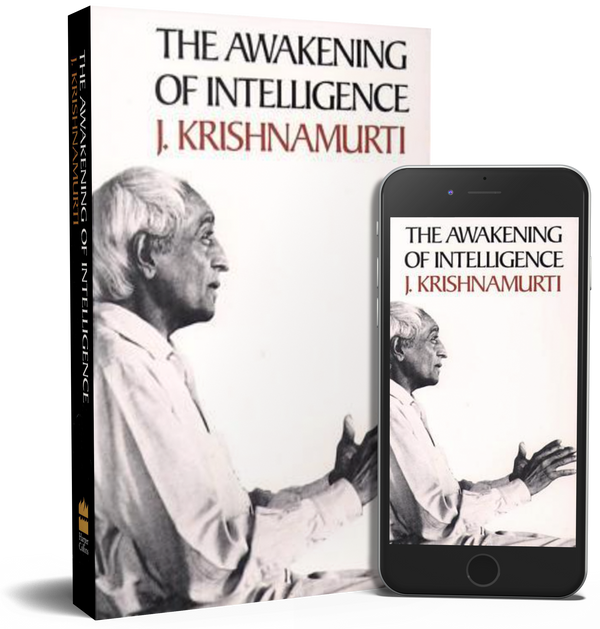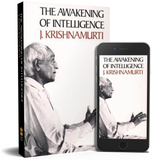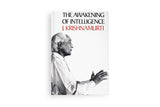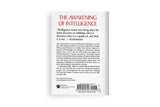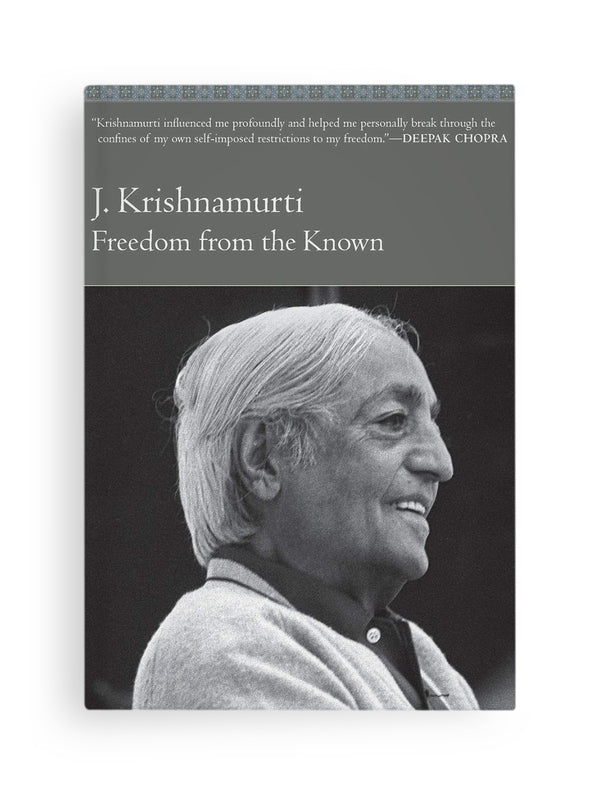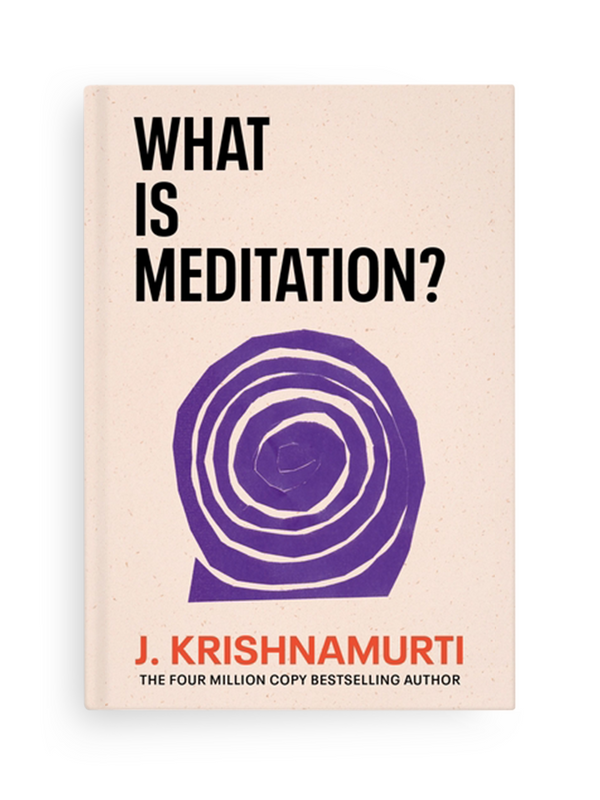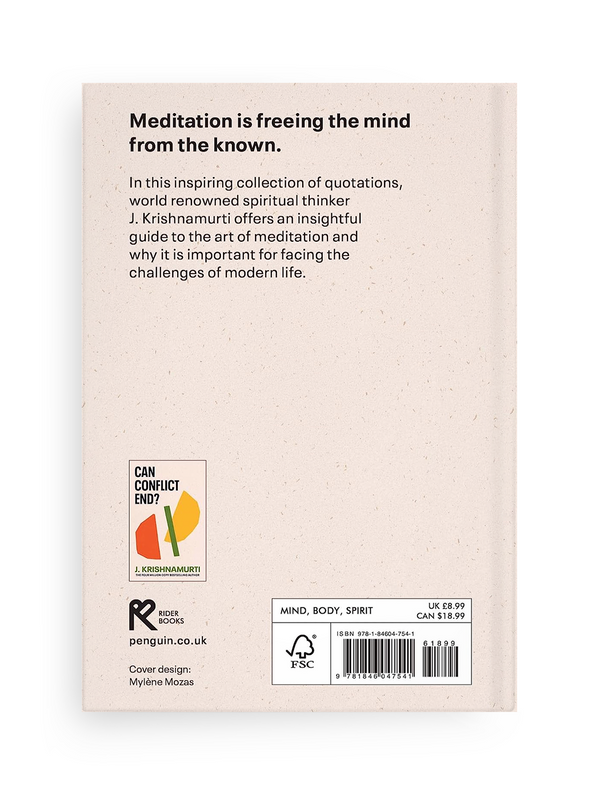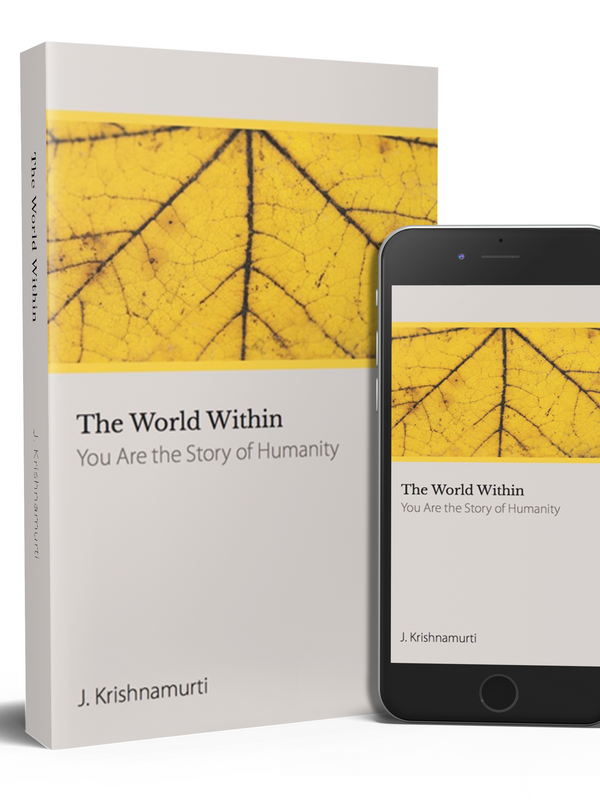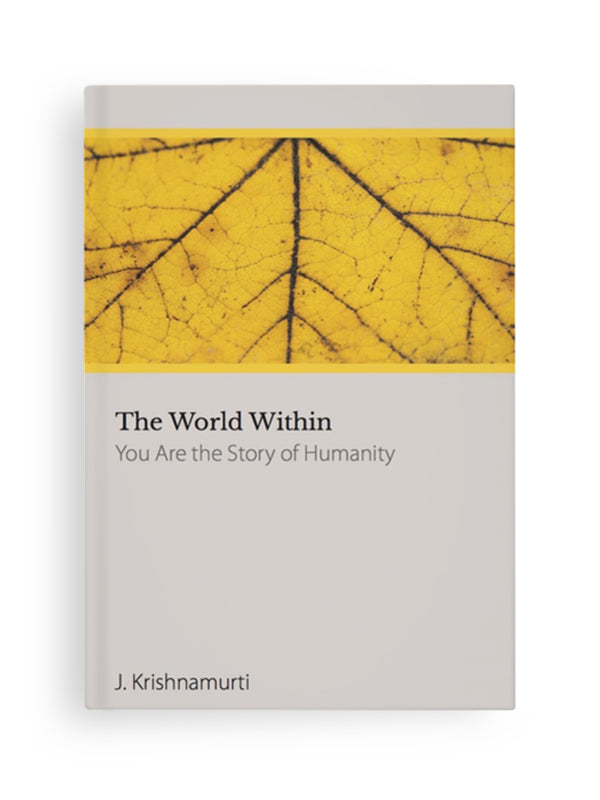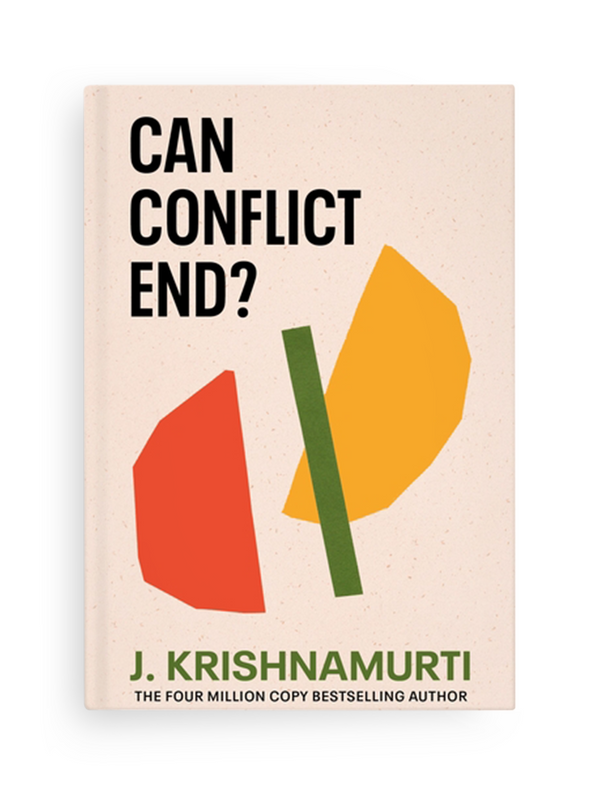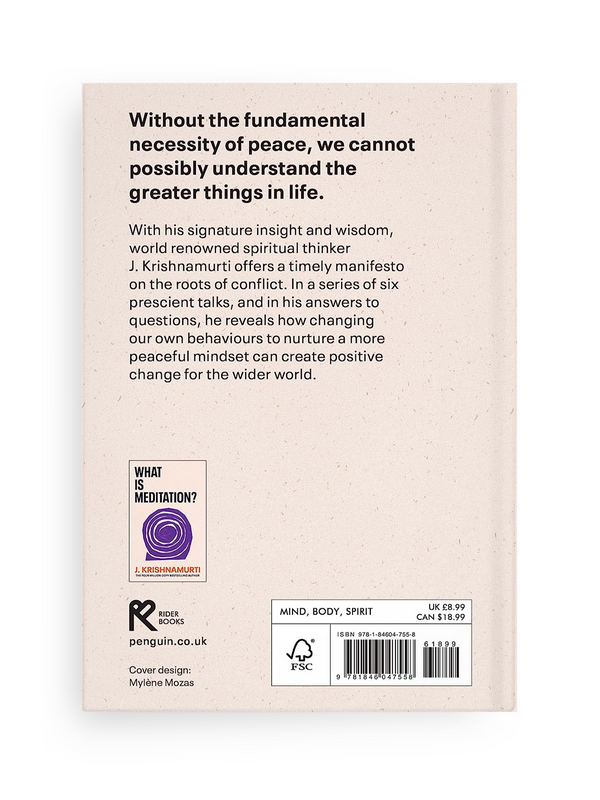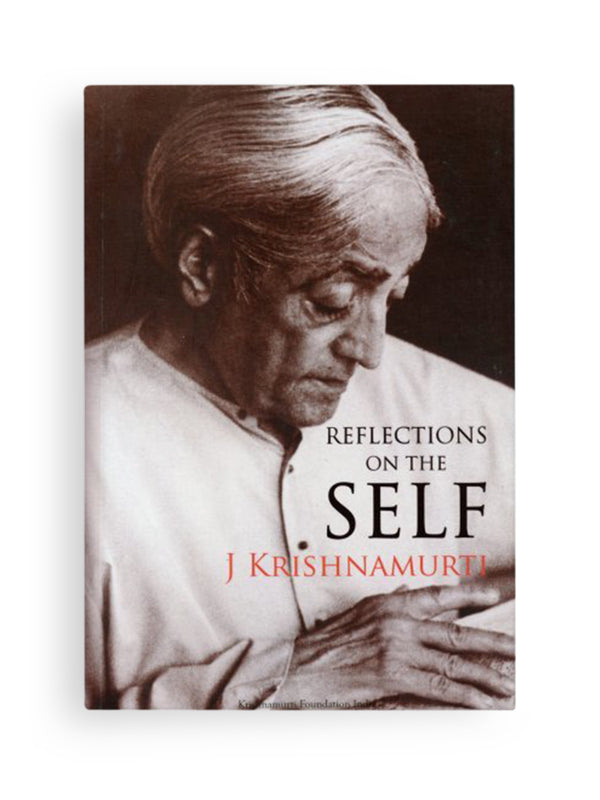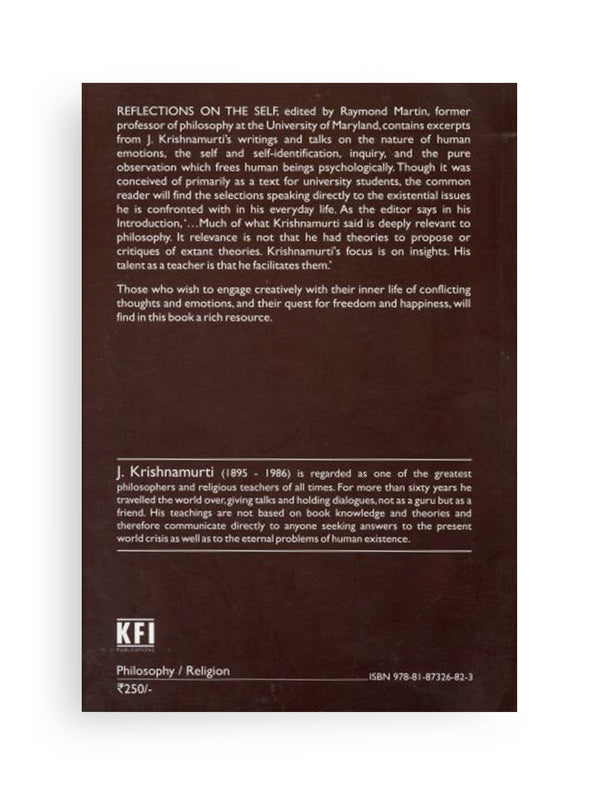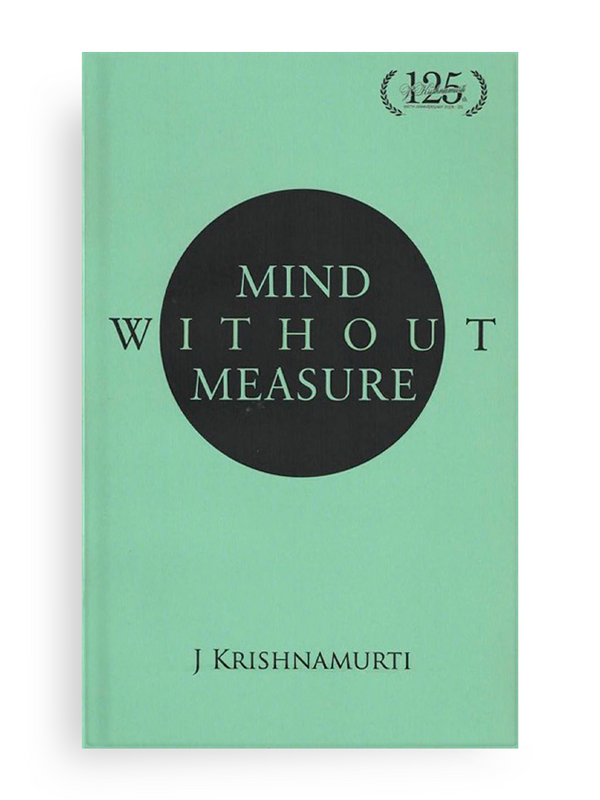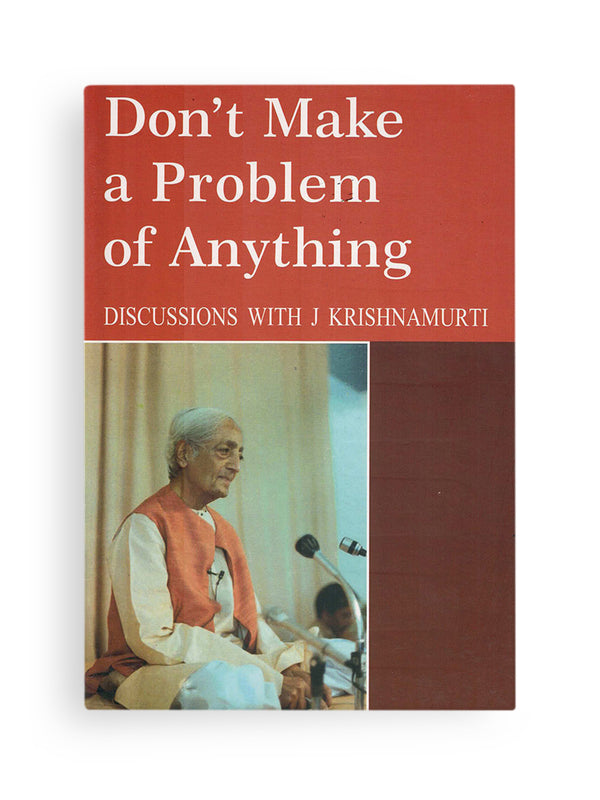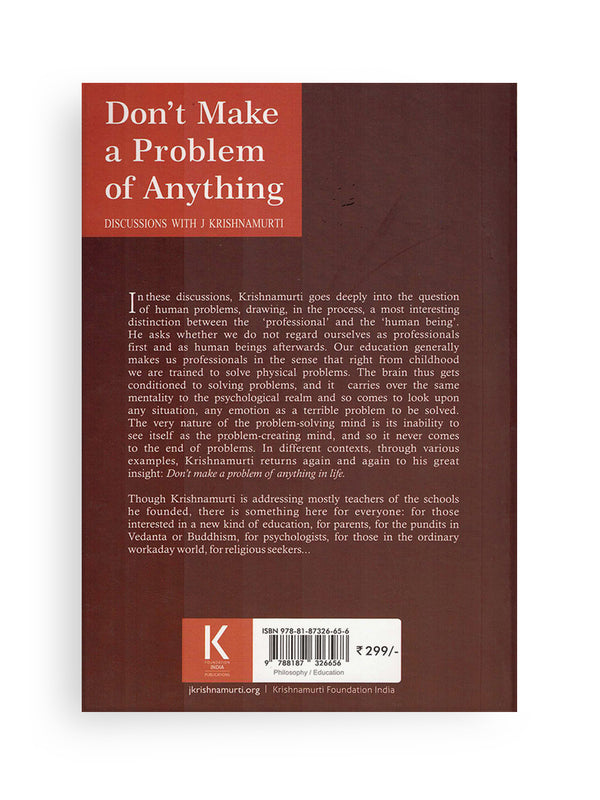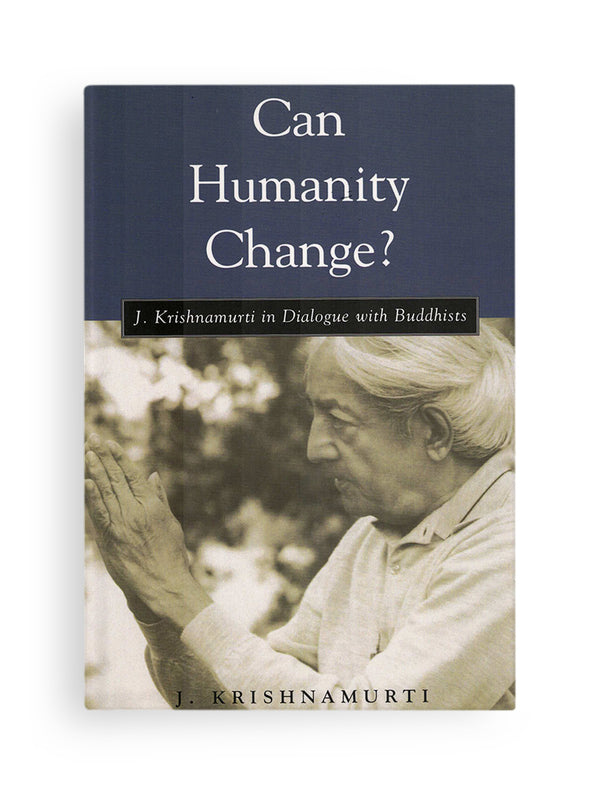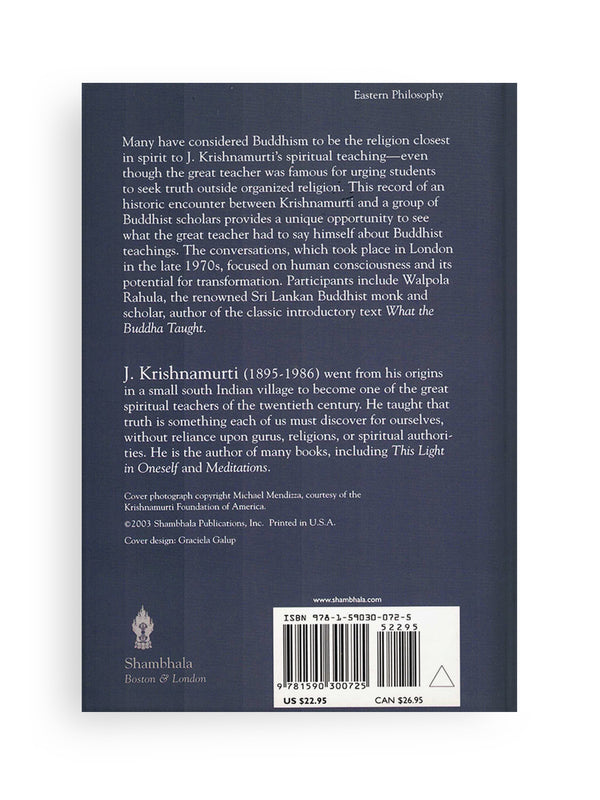Available in Paperback and Ebook*
*The Ebooks available from the Krishnamurti Bookstore are supported by all e-readers except Kindle. Click here for the Kindle Edition.
This book is a must read—for any person interested in Krishnamurti and his teachings. This is one of the most comprehensive texts of Krishnamurti's teachings, containing discussions with various individuals — including Professor Jacob Needleman, Alain Naudé, Swami Venkatesananda, and Professor David Bohm.
Professor Jacob Needleman asks about the present situation of the young, the role of the teacher, of tradition and its relation with direct perception, and the need for awareness of a “cosmic dimension.” With Alain Naudé he discusses the problem of good and evil, the fragmentation of consciousness and the possibility of psychological revolution.
Venkatesananda puts important questions to Krishnamurti on traditional Vedanta methods: he invites Krishnamurti to scrutinize the paths of the four Yogas and the present-day validity of certain mahavakyas from the Upanishads.
From the book:
Krishnamurti: Felicity and so on. Now what is good? I feel goodness is total order. Not only outwardly, but especially inwardly. I think that order can be absolute, as in mathematics I believe there is complete order. And it is disorder that leads to chaos, to destruction, to anarchy, to the so-called evil.
Naude: Yes.
Krishnamurti: Whereas total order in one's being, order in the mind, order in one's heart, order in one's physical activities - the harmony between the three is goodness.
Naude: The Greeks used to say that perfected man had attuned in total harmony his mind, his heart and his body.
Krishnamurti: Quite. So we shall say for the moment that goodness is absolute order. And as most human beings live in disorder they contribute to every form of mischief, which ultimately leads to destruction, to brutality, to violence, to various injuries, both psychic and physical. For all that one word may be used: "evil". But I don't like that word "evil" because it is loaded with Christian meaning, with condemnation and prejudice.
To open and read Epub Ebooks-
Apple Devices Click here
Android Devices Click here
Windows Devices Click here
Publisher: HarperSanFrancisco
Author/Editor: J. Krishnamurti
538 pp - Paper
Customer Reviews
Jiddu Krishnamurti lived from 1895 to 1986, and is regarded as one of the greatest philosophical and spiritual figures of the twentieth century. Krishnamurti claimed no allegiance to any caste, nationality or religion and was bound by no tradition. His purpose was to set humankind unconditionally free from the destructive limitations of conditioned mind. For nearly sixty years he traveled the world and spoke spontaneously to large audiences until the end of his life in 1986 at the age of ninety. He had no permanent home, but when not traveling, he often stayed in Ojai, California, Brockwood Park, England, and in Chennai, India. In his talks, he pointed out to people the need to transform themselves through self knowledge, by being aware of the subtleties of their thoughts and feelings in daily life, and how this movement can be observed through the mirror of relationship.

